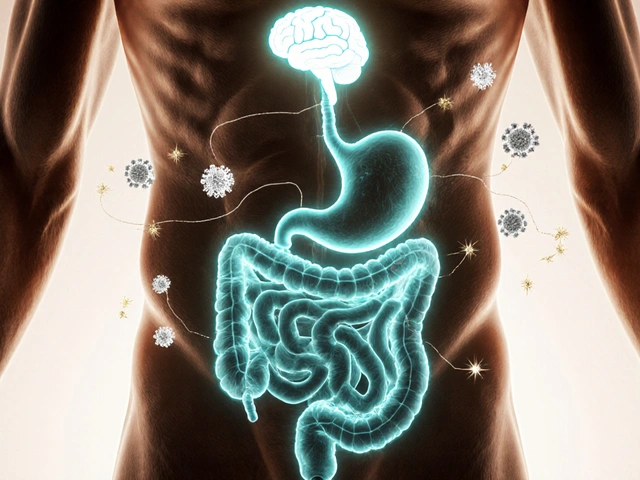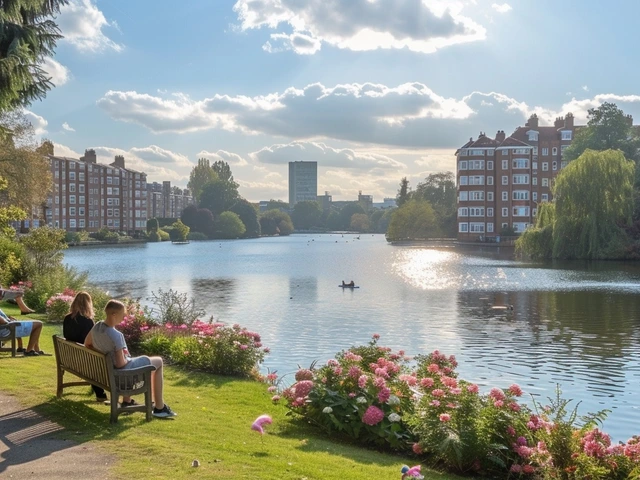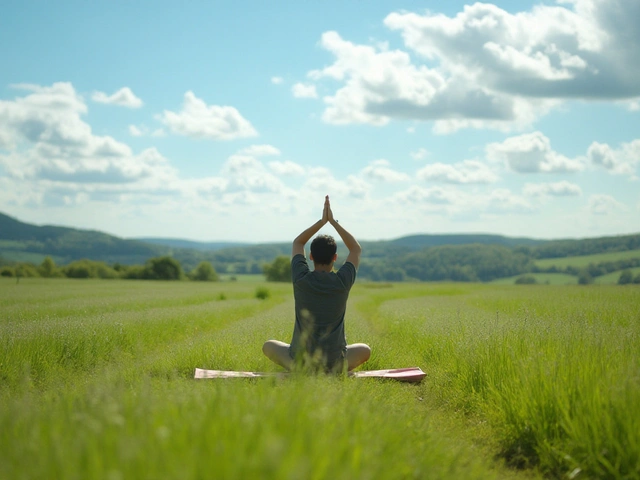Relaxation isn't just a luxury; it's a necessity in our increasingly hectic lives. Finding time for yourself can make a world of difference in your mental and physical health. Learning and mastering various relaxation techniques can help you manage stress, improve your mood, and boost your overall well-being.
While methods like deep breathing and mindful meditation might sound simple, their impact is profound when practiced consistently. This article explores different relaxation techniques and offers tips for making them part of your daily routine.
- Understanding Relaxation
- Deep Breathing Exercises
- Mindful Meditation
- Incorporating Relaxation into Daily Life
Understanding Relaxation
When we talk about relaxation, we often think of activities like lounging on the couch or taking a warm bath. While these activities can feel soothing, true relaxation goes deeper. It involves letting go of stress and tension that we accumulate throughout the day. But how do we achieve this deeper state of calm? The art of relaxation is a skill, and like any skill, it takes practice and understanding.
Our bodies and minds are constantly under stress, whether from work pressures, personal issues, or just the hustle and bustle of daily life. This stress can manifest in various ways, including headaches, muscle tension, and emotional fatigue. Relaxation helps counteract these effects by reducing the levels of cortisol, the stress hormone, in our bloodstream. Lower cortisol levels lead to better overall health, both mentally and physically.
One interesting fact to note is that relaxation techniques have been practiced for centuries around the globe. Ancient cultures understood the importance of relaxation long before modern science confirmed its benefits. For example, mindfulness meditation, which has roots in Buddhist practices, has gained significant popularity in the West for its ability to reduce anxiety and enhance well-being.
Contrary to popular belief, relaxation doesn’t mean doing nothing. It’s an active process of engaging in activities that promote calmness and reduce stress. Whether it’s through deep breathing exercises, progressive muscle relaxation, or mental visualization, the goal is to create a state of peace and tranquility. It's worth noting that what works for one person might not work for another, so it's important to experiment with different techniques to find what suits you best.
In an era where time is often equated with productivity, it’s crucial to recognize the value of relaxation. According to a study published in the journal Health Psychology, individuals who practiced relaxation techniques regularly experienced a significant decrease in stress-related symptoms compared to those who didn’t. This underscores the idea that making time for relaxation isn’t just beneficial—it’s essential.
As the late relaxation expert Edmond Jacobson once said,
“Relaxation means releasing all concern and tension and letting the natural order of life flow through one’s being.”His words remind us that relaxation is about more than just physical rest; it’s about achieving a state of mental and emotional equilibrium. It’s not something we should overlook or take lightly; it’s a fundamental aspect of a healthy lifestyle.
In summary, understanding relaxation is about recognizing its importance and implementing it into our daily lives. By reducing stress, enhancing well-being, and promoting a more balanced state of mind, effective relaxation techniques can make a substantial impact on our health and happiness. So, take the time to explore different methods and find the ones that work best for you—the results could be life-changing.
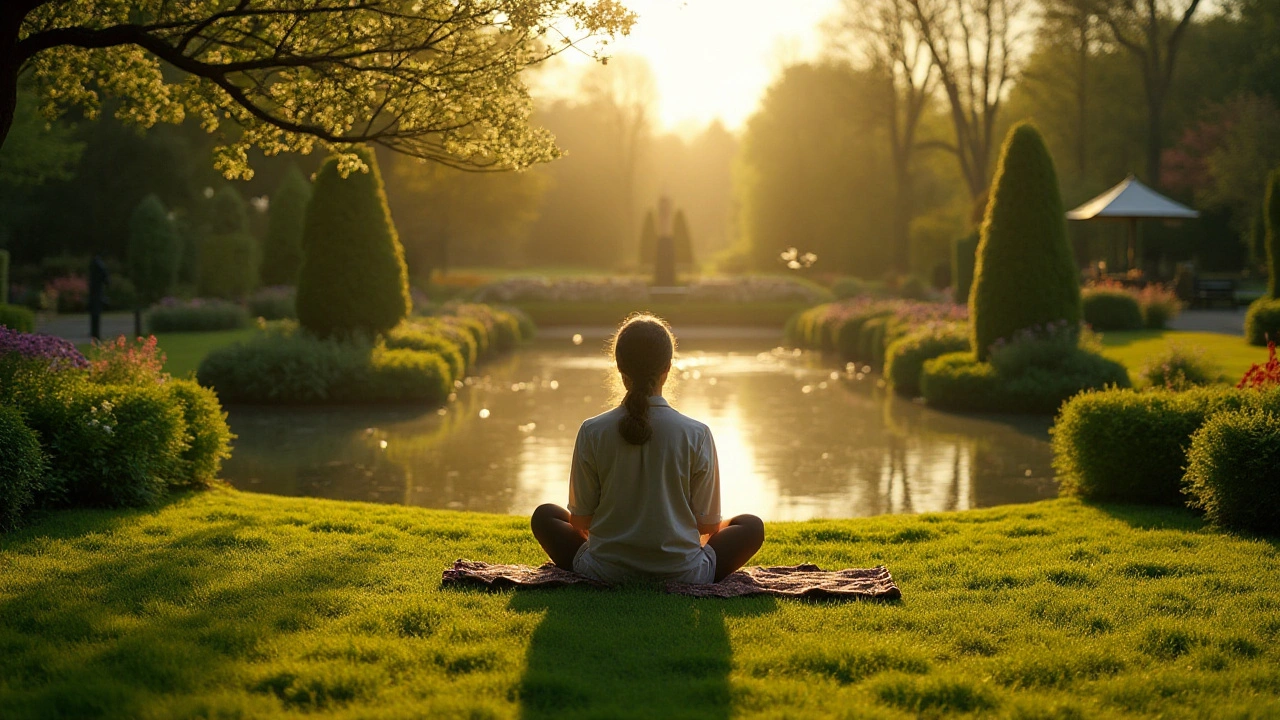
Deep Breathing Exercises
Deep breathing exercises are among the simplest yet most effective relaxation techniques for achieving stress relief. These exercises not only calm your mind but also engage your body's natural calming response. The practice involves focused breathing, which helps to reduce tension and brings your mind to the present moment.
One of the classic methods is called diaphragmatic or belly breathing. To do this, sit or lie down in a comfortable position. Place one hand on your chest and the other on your belly. Breathe in deeply through your nose, allowing your diaphragm (not your chest) to inflate with air, making your belly rise. Exhale slowly through your mouth. Aim to do this for about 5-10 minutes daily for best results.
Another popular technique is box breathing, often used by Navy SEALs to stay calm and focused in stressful situations. Begin by inhaling slowly through your nose to a count of four. Hold your breath for another count of four. Exhale through your mouth for a count of four, and then hold your breath again for the same duration. Repeat this cycle for several minutes.
Deep breathing has been proven to reduce stress. According to the American Institute of Stress, deep breathing increases the supply of oxygen to your brain and stimulates the parasympathetic nervous system, promoting a state of calmness. It can also improve your cardiovascular health by lowering blood pressure and slowing the heart rate.
Dr. Herbert Benson, a pioneer in mind-body medicine, coined the term 'relaxation response,' which describes the physical state of deep rest. He said, "The relaxation response is essentially the opposite of the stress response; it can bring your system back into balance and decrease the harmful effects of stress."
If you’re new to deep breathing exercises, apps like Calm and Headspace offer guided breathing sessions that can help you get started. These apps provide structured routines and soothing background sounds, making it easier for you to establish a practice.
Deep breathing exercises can be adapted to fit your lifestyle. You can practice them anywhere, whether you're at work, at home, or even while commuting. Making these exercises a part of your regular routine can lead to significant improvements in both your mental and physical health.

Mindful Meditation
Mindful meditation is a relaxation technique that has been gaining popularity as more people seek effective ways to manage their stress relief. The practice involves focusing your mind on the present moment, acknowledging your thoughts and emotions without judgment. This simple yet powerful method can significantly impact your mental well-being.
One of the primary benefits of mindful meditation is its ability to reduce stress. Studies have shown that regular practice can help decrease the production of cortisol, the body's primary stress hormone. By doing so, you can improve your mood and even boost your immune system. A 2016 study published in JAMA Internal Medicine found that mindful meditation can be as effective as several existing treatments for stress-related problems.
Getting started with mindful meditation doesn't require any special equipment or significant time commitment, making it accessible for everyone. To begin:
- Find a quiet, comfortable place to sit or lie down. It could be in your living room, bedroom, or even a quiet corner at work.
- Close your eyes or keep them open with a soft gaze.
- Take a few deep breaths, inhaling through your nose and exhaling through your mouth.
- Shift your focus to your breath. Notice the sensation of the air entering and leaving your body.
- If your mind starts to wander, gently bring your focus back to your breath without judgment.
- Start with just a few minutes a day and gradually increase the duration as you become more comfortable with the practice.
Mindful meditation can be done almost anywhere and at any time. The key is to make it a regular part of your routine. Whether you choose to meditate in the morning to start your day with clarity, during your lunch break to recharge, or before bed to unwind, consistency is crucial.
As you continue to practice mindful meditation, you may find that you're better able to handle stress and remain calm in challenging situations. According to Jon Kabat-Zinn, creator of the Mindfulness-Based Stress Reduction program, “Meditation is about paying attention, on purpose, in the present moment, and non-judgmentally.” This approach helps you develop greater self-awareness and resilience.
Incorporating mindful meditation into your daily life can also enhance your overall sense of well-being. You may notice improvements in your relationships, productivity, and even physical health. For instance, research has shown that regular meditation can help lower blood pressure, improve sleep quality, and reduce symptoms of anxiety and depression.
If you're new to mindful meditation, there are plenty of resources available to guide you. Many apps offer guided sessions, which can be particularly helpful for beginners. Additionally, books and online courses can provide valuable insights and techniques to deepen your practice. Remember, the goal is not to achieve a particular state or eliminate thoughts but to cultivate a gentle awareness of the present moment.
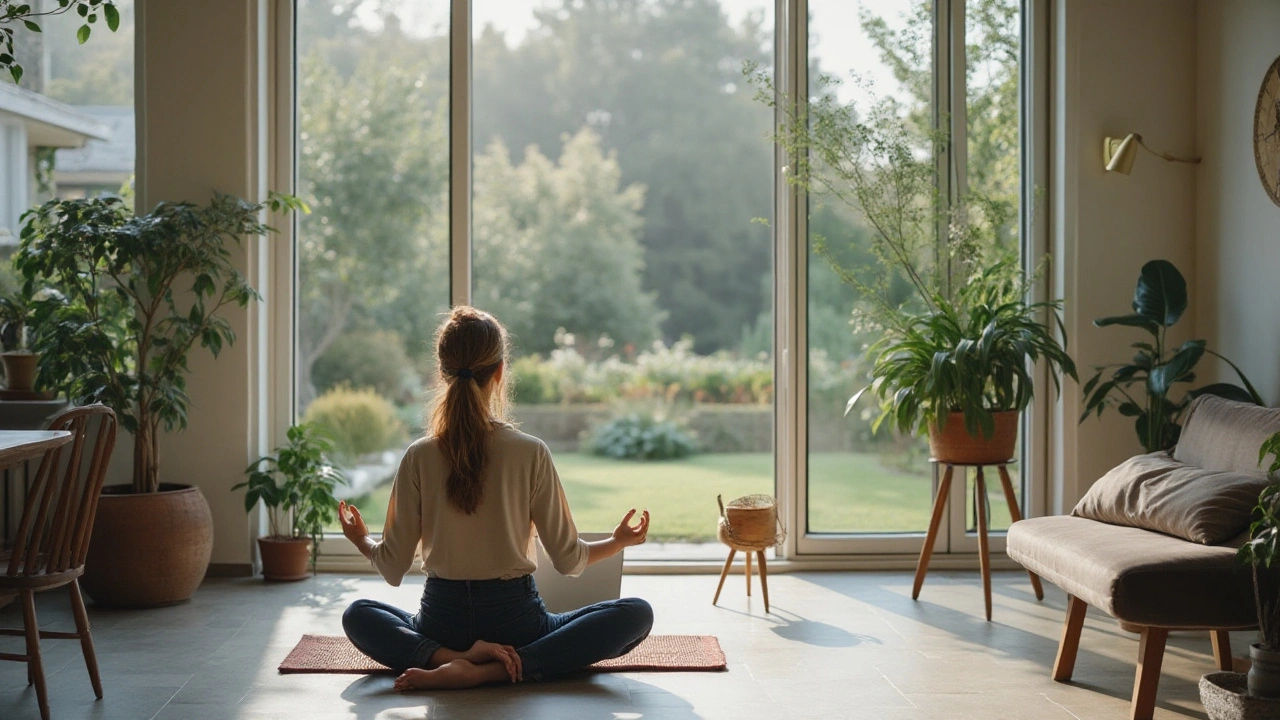
Incorporating Relaxation into Daily Life
When it comes to making relaxation a part of your routine, the key is consistency. Just like exercising or eating well, practicing relaxation techniques regularly can lead to significant improvements in your quality of life. The journey begins by identifying moments in your day where you can seamlessly introduce these techniques. Whether it's a five-minute breathing exercise during your lunch break or a short meditation session before bed, these practices can be integrated without disrupting your schedule.
One of the simplest ways to start is by dedicating a specific time each day to unwind. Many people find that starting the day with a few minutes of deep breathing sets a positive tone. You could follow this with a brief meditation that clears your mind before diving into the day's activities. Research shows that just 10 minutes of mindful meditation each morning can increase focus and reduce stress throughout the day. Even if mornings are hectic, you can find pockets of time elsewhere to practice these techniques.
Another effective strategy is to combine relaxation with activities you already enjoy. For instance, if you like walking, consider turning it into a mindful walk. Focus on your breathing and the sensations around you. Notice the texture of the ground under your feet, the sounds of nature, and the feel of the air. This practice shifts your mind away from stressors and grounds you in the present moment, enhancing both your walk and your mental state.
Creating a relaxing environment at home is also crucial. Set up a dedicated relaxation space, whether it's a corner with comfortable pillows or a spot outside where you can enjoy nature. Keep this area free of distractions and designate it as your sanctuary for relaxation. Having a specific place for unwinding helps signal to your brain that it's time to relax when you enter that space. Gentle lighting, soothing music, and calming scents like lavender or chamomile can also enhance the relaxation experience.
To stay motivated, consider keeping a relaxation journal. Document what techniques you tried, how you felt before and after, and any changes in your overall well-being. Tracking your progress helps in recognizing the benefits, which can motivate you to continue. Moreover, it offers insights into which techniques work best for you, allowing you to tailor your practice to your unique needs.
Incorporating relaxation into your daily life doesn't have to be complicated. Whether you spend a few minutes in silence, enjoy a mindful walk, or meditate, these small efforts can accumulate into significant stress relief over time. As Dr. Herbert Benson, a pioneer in mind-body medicine, once said, "The relaxation response is a physical state of deep rest that changes the physical and emotional responses to stress... including decreases in heart rate, blood pressure, and muscle tension." By prioritizing relaxation, you invest in your long-term mental and physical health.




